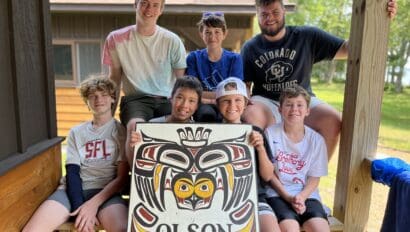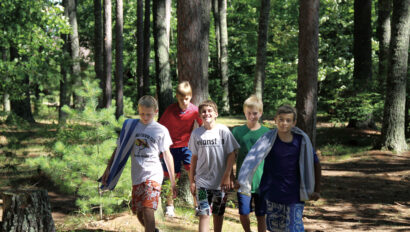ACCLIMATE:
Become accustomed to a new climate or to new conditions.
Camp Chippewa is not a sport camp. But, we play sports.
Camp Chippewa is not a tripping camp. But, we take trips.
Camp Chippewa is not a crafts camp. But, we do crafts.
Camp Chippewa is not a tennis camp. But, we play tennis.
You get the idea.
Life in general seems to be a lot like camp in specific. Every opportunity presented in life allows us to grow, learn, advance, and adapt. Those opportunities help our campers acclimate to a new environment, wherever and whenever that may be. We believe a key element to growth and development is the proper amount of challenge, risk, and stress provided under the guidance and supervision from the leadership that is our staff.
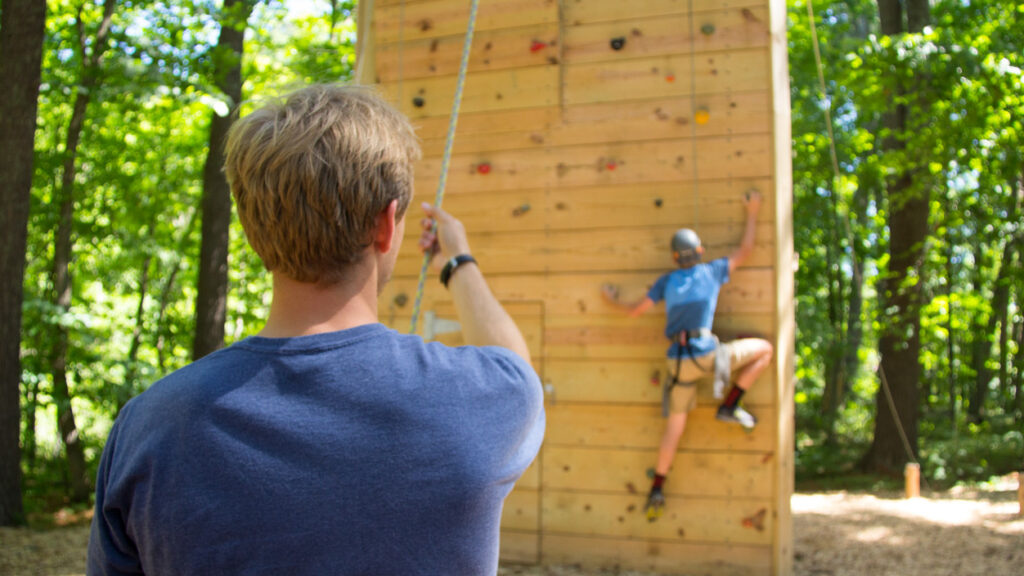
Our goal is to teach core values through the activities and adventures we offer. We play sports at a high level. We take trips that provide age and skill-appropriate challenges. We do crafts that ignite the imagination. We play tennis to advance skills in a lifelong sport. Our goal is to get our campers accustomed to a new climate and to new conditions. It’s our identity and we have the leaders to make it happen.
An important tenant that shapes Camp Chippewa’s identity is creating an environment that builds deep, lasting, and meaningful relationships. We do that via sports, trips, crafts, tennis, meals in the dining hall, and more. Building resilience, tolerance, grit, is another key tenant in Chippewa’s philosophy.
Dr. Kenneth Ginsburg is a pediatrician who specializes in human development. Ginsburg stresses resilience as the most important trait for young people to develop, and to help parents and communities raise resilient children he broke resilience down into seven components—competence, confidence, connection, character, contribution, coping, and control. These components are intentionally included in moment-to-moment and day-to-day life at Camp Chippewa.
What does this look like when a boy is at camp? A defined schedule, mostly unnoticed by campers, means the body and mind get into a daily rhythm. Consistent, adequate, restful sleep helps everyone get into a healthy mental and physical pattern. Breakfast, lunch, and dinner offer the nutrients a growing, active body needs. No snacks between meals means appetites are keen and bodies become fit. Group fitness is at every turn whether it’s swim class, soccer, or the constant movement as simple as going as a cabin to the washhouse to brush teeth. Cleaning up the cabin and organizing one’s clothes and belongings becomes routine and done daily, almost automatically, with guidance, support, and encouragement from engaged counselors. And, like buckling your seatbelt, always donning a personal floatation device (PFD) when out on the water is routine, automatic, and non-negotiable.
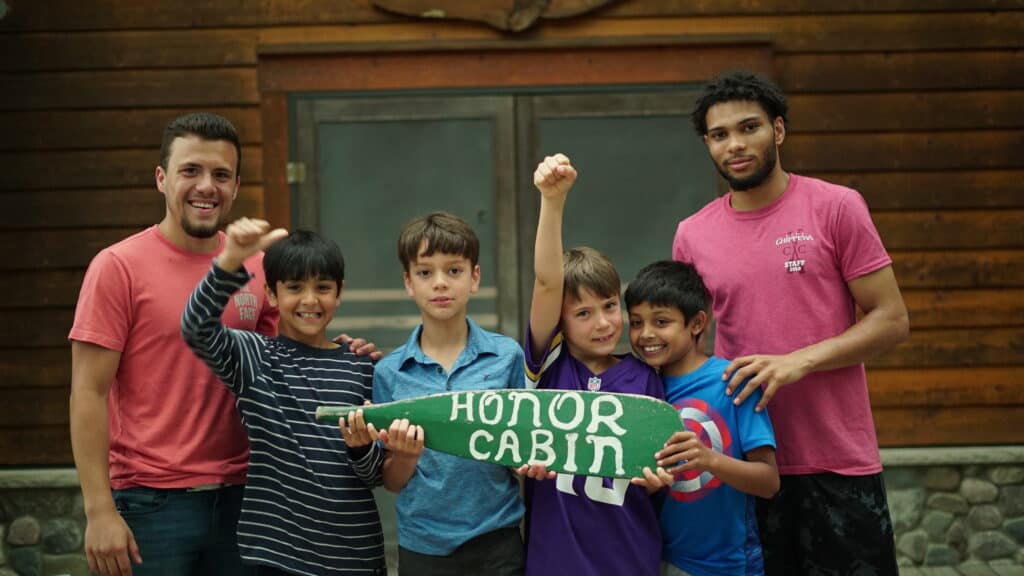
For a first-time camper, all these new conditions quickly become a normal part of camp life. Research shows boys and girls who attend youth sleep-away camp exhibit less anxiety and homesickness as freshmen at college. Being homesick at camp is a normal part of the acclimating process. Typically, our younger campers take 2-3 days to feel comfortable with the routine at camp. It’s hard the first summer when a boy doesn’t know where the washhouse is, where the medical staff is located, when the meals will be served, if the food is good (ours is delicious), and who will put them to bed and wake them up the next morning. These are all real and valid feelings. Our counselors understand this and make connections with boys as they become accustomed to new conditions.
Our older campers learn how to acclimate as they head out on longer and longer canoe trips and live fully in the moment. No one likes to paddle into a headwind, camp in the rain, or put up with hordes of mosquitoes. But older campers have the skills—or are learning the skills—to cope with whatever the environment throws at them. In comparison to tolerating the elements on a canoe trip, coping as a freshman on campus or as a new employee is a walk in the park.
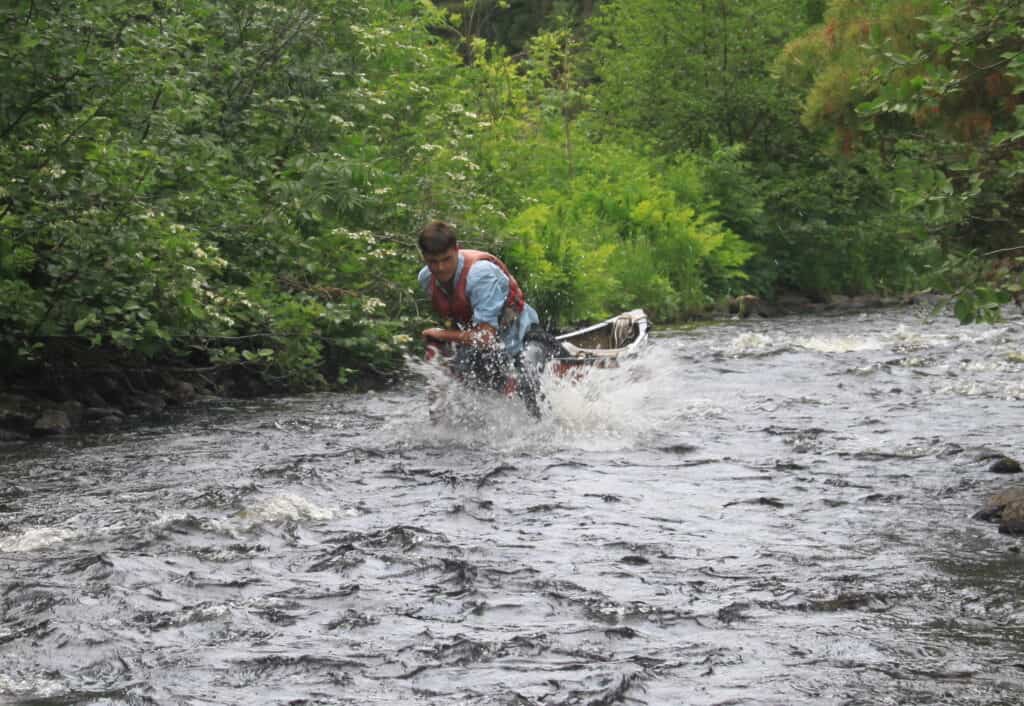
We take pride in offering lifelong activities and skills at Chippewa like fencing, sailing, riflery, and climbing. Boys advance their skills each day and with every passing year. In concert with these hard skills, our campers are learning the soft skills that will allow them to be a team member, a contributor, a listener, a leader, and to have the confidence to be comfortable with who they are.
Ranks are passed. Beds are made. Canoes are portaged. A brotherhood is built. We live in nature and acclimate to the winds that blow. Boys head home having grown in character. They are on the path to becoming not just surviving adults but thriving adults. We hear this and more from our parents and alumni, and that is the wind that fills our sails and helps stay on course. We are with boys every step of the way as they become accustomed to a new climate and to new conditions.
